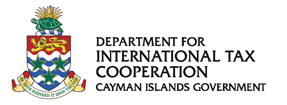The Department for International Tax Cooperation (DITC) advises industry that Cabinet approved the following on Tuesday, 30 April 2019:
- The International Tax Co-operation (Economic Substance) (Amendment of Schedule) (No. 2) Regulations, 2019; and
The Regulations and Guidance were developed based on feedback received from stakeholders in response to two statutory private sector consultations; and also from the Secretariat to the OECD Forum on Harmful Tax Practices (FHTP) and the EU Commission.
The International Tax Co-operation (Economic Substance) Law, 2018 (ES Law) provides Cabinet with powers to make regulations to amend the Schedule of the ES Law (section 15). The ES Law also provides that the Tax Information Authority (TIA), with the approval of Cabinet, may issue guidance; and that any relevant entity that is required to satisfy the economic substance test shall have regard to the Guidance.
The amendments to certain definitions in the ES Law contained in the Regulations improve alignment to FHTP requirements and the EU Scoping Paper; avoids risk of circumvention; and removes incorrect cross-references. An important change is to the definition of core income generating income (CIGA) to emphasise that “Cayman Islands CIGA” means that all CIGA must be carried on in the Islands.
Other notable changes to the regulations are the definitions of domestic company, fund management business, high-risk intellectual property business, investment fund, relevant income, and the substitution of pleasure yacht to pleasure vessel in connection with shipping business. To align with regulatory amendments, Guidance v2.0 is necessary.
The DITC is developing systems and resources for notification, reporting, compliance and enforcement functions under the ES Law, and will publish a user guide once the systems are ready.
Please refer to DITC’s Economic Substance Legislation and Resources for more information, and email the DITC Compliance Team if you have ES Law queries that do not appear to be covered in the Guidance.
